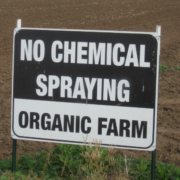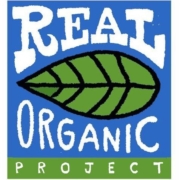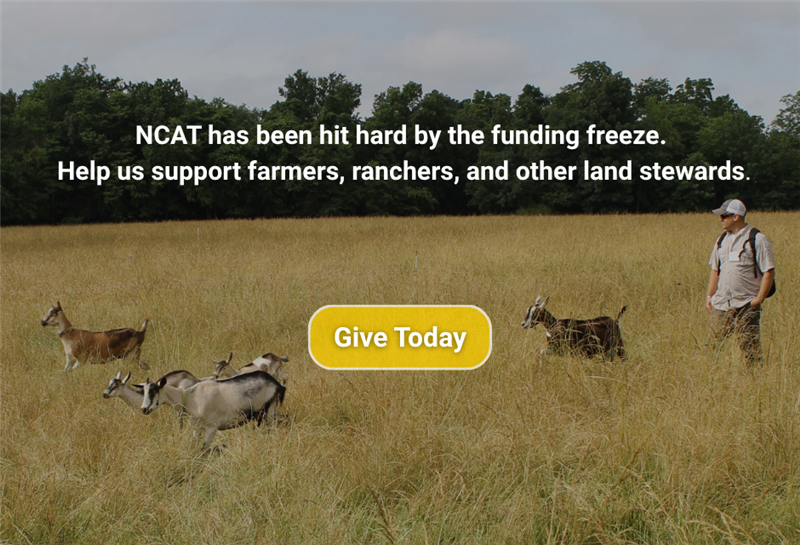NCAT Staff Complete Rigorous International Organic Inspectors Association Crop and Livestock Inspector Training
 Print This Post
Print This Post
By Lizzie Gill, Local Foods Specialist
Last month, 12 National Center for Appropriate Technology employees hit the books for a rigorous week-long training through the International Organic Inspectors Association (IOIA). Through the IOIA curriculum, we developed skills required for inspecting and reporting on the management of organic crop and livestock operations. Eight employees participated in the Basic Crop Inspection Training, and four participated in the Basic Livestock Inspection Training. Prior to the course, the livestock group had to pass the 100-Level NOP Livestock Standards training, and both groups were required to pass the 100-Level NOP Crop Standards training.
The courses were intense, to say the least, but the NCAT team gained in-depth knowledge of the processes, policies and regulations involved to inspect livestock and crops for Organic certification. Here are some of our key takeaways from the week.
Organic Inspector Conduct
There’s a clear distinction between organic inspecting and agricultural specialist consulting. As, NCAT Rocky Mountain West Sustainable Agricultural Specialist John Wallace says “our job with NCAT is to help answer farmer’s questions and when it comes to Organic certification, we are well positioned to give advice on how to best prepare someone for an inspection. Whereas an inspector is not in any position to tell a farmer how or what to do to pass the inspection. In fact, the inspector has no role in that decision making. They are simply acting as antenna for the certifying agency.”
Audit Trail Requirements
Organic producers must keep traceable records of inputs, farm activities and sales. NCAT Gulf States Sustainable Agriculture Specialist Nina Prater expressed her surprise with the detailed record keeping requirements. “The fact that organic inspectors have to be able to trace products from point-of-sale to field number to seed is amazing and reassuring about the integrity of the organic label. Organic farmers have to be good growers, marketers, and excellent record-keepers as well, and I just have so much respect for them.”
Understanding National Organic Program Standards
The Organic regulations and requirements are specific and detailed. We worked closely with the USDA National Organic Program (NOP) standards to site on-farm observations. One must be familiar with all the allowable and nonallowable inputs. Gulf States Sustainable Agricultural Specialist & Acting Regional Director Felicia Bell was shocked how intense an inspection could be when farmers have a large list of inputs.
Devona Bell, Sustainable Agriculture and Rural Communities Program Director was wowed that 30 percent feed from grazing does NOT equate to 30 percent of the year all feed is from grazing. “It means that during grazing season, minimum 120 days, that 30 percent of the animal’s feed during that time must be from the pasture/grazing and 70 percent can be from feed,” she says.
The course was rigorous. The deep dive into Organic regulations gives NCAT specialists a unique opportunity to help break barriers for producers looking to get into Organic production. Reach out to NCAT with questions about organic production, for crops and livestock, as this cohort of NCAT Agricultural Specialists is ready to give well informed and practical advice.
Get in touch by calling 1-800-346-9140, email us at askanag@ncat.org, or connect with us on Facebook.

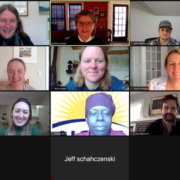
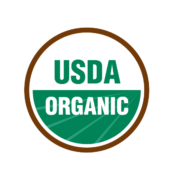
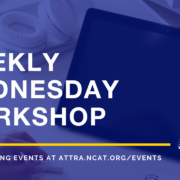
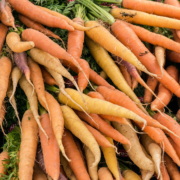 USDA Photo by Lance Cheung.
USDA Photo by Lance Cheung.